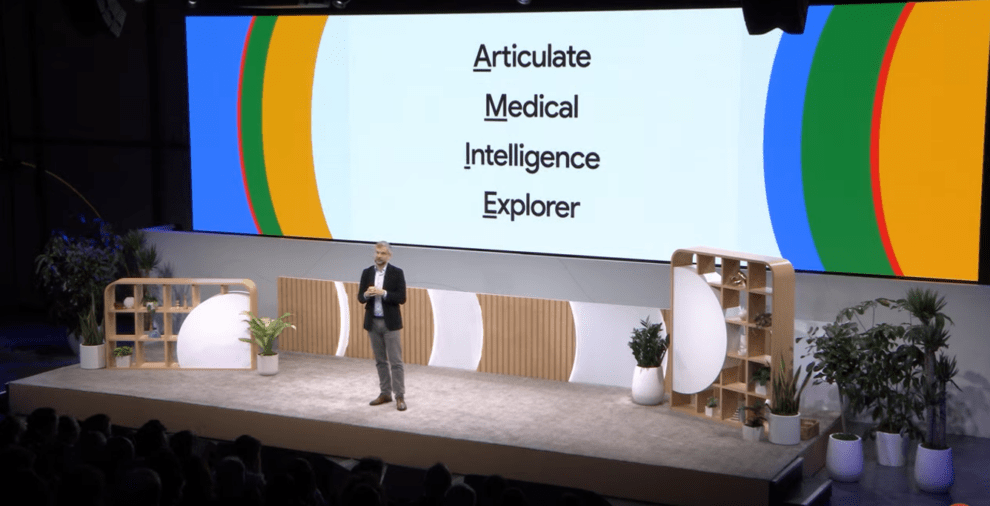Artificial intelligence (AI) has become a cornerstone of modern innovation, reshaping industries and redefining how we approach complex challenges. At the heart of this transformation lies Google, whose AI initiatives are driving groundbreaking advancements across sectors. From diagnosing diseases to personalizing learning experiences, Google’s AI technologies are not just tools—they’re catalysts for change. In this exploration, we’ll delve into how Google’s AI is transforming healthcare, education, and beyond, uncovering the ripple effects of these innovations on society.
Healthcare: Diagnosing Tomorrow, Healing Today
Healthcare stands at the forefront of AI’s impact, with Google’s efforts yielding remarkable outcomes. One of the most transformative projects is Project Baseline, a longitudinal study aimed at mapping human health. By collecting data from participants over an extended period, Project Baseline seeks to uncover early warning signs of diseases, enabling preemptive interventions. This initiative exemplifies Google’s commitment to using AI to enhance preventive care, shifting the focus from treatment to prevention.
Another pivotal project is Google Health, which leverages AI to improve diagnostic accuracy. For instance, DeepMind, a subsidiary of Alphabet (Google’s parent company), collaborated with Moorfields Eye Hospital in London to develop an AI system capable of detecting diabetic retinopathy and macular degeneration with remarkable precision. By analyzing retinal scans, the system identifies signs of these conditions earlier than human specialists, allowing for timely interventions that preserve vision. This breakthrough underscores AI’s potential to democratize healthcare, making advanced diagnostics accessible to underserved populations worldwide.
AI-powered tools are also revolutionizing medical imaging. Google’s LYNA (Lymph Node Assistant) uses machine learning to analyze lymph node biopsies, detecting breast cancer metastases with unprecedented accuracy. By automating tedious tasks, LYNA frees radiologists to focus on more complex cases, improving overall efficiency and patient outcomes. Similar applications extend to pathology, radiology, and dermatology, where AI systems enhance diagnostic speed and reliability.

Education: Personalizing Learning for Every Student
Education has long been a focal point for Google’s AI initiatives, driven by the belief that technology can empower learners of all ages. Google Classroom, powered by AI, is a prime example of how adaptive learning environments are reshaping education. By analyzing student performance data, AI algorithms personalize lesson plans, offering tailored exercises and resources to meet individual needs. This approach fosters engagement, boosts retention, and bridges gaps in traditional classroom settings.
Google’s AI tools extend beyond K-12 education. In higher education, platforms like Teachable Machine allow educators to build custom AI models without coding expertise. This democratizes AI development, enabling instructors to create tools that address specific subject matter challenges. For instance, a professor of environmental science might develop an AI model to classify plant species based on images, providing students with hands-on experience in data analysis.
Perhaps the most promising application of AI in education is its ability to predict student success. By analyzing patterns in attendance, grades, and participation, AI systems can identify at-risk students early, allowing educators to intervene with targeted support. This proactive approach not only improves graduation rates but also reduces dropout rates, ensuring that every student has the opportunity to succeed.
Beyond Healthcare and Education: Innovations Across Industries
Google’s AI innovations extend far beyond healthcare and education, touching nearly every sector imaginable. In transportation, Waymo, Google’s autonomous vehicle division, is pioneering the future of mobility. By leveraging AI to process real-time data from sensors, cameras, and radar systems, Waymo vehicles navigate complex urban environments with precision. This technology promises to reduce accidents, alleviate traffic congestion, and promote sustainable urban development.
In retail, Google’s AI tools are reshaping customer experiences. Retailers use AI-driven analytics to understand consumer behavior, optimize inventory, and personalize marketing campaigns. For example, Google Cloud’s AI capabilities enable brands to segment audiences based on purchasing habits, delivering tailored promotions that increase conversion rates. This shift toward data-driven decision-making benefits both businesses and consumers, fostering loyalty and satisfaction.
The energy sector also benefits from Google’s AI expertise. Google’s DeepMind has partnered with wind farms to optimize energy production. By predicting wind patterns and adjusting turbine operations accordingly, AI systems maximize output while minimizing waste. This innovation contributes to a cleaner, more sustainable energy grid, aligning with global sustainability goals.
Ethical Considerations: Navigating the Ethical Frontier
As AI becomes increasingly integrated into daily life, ethical considerations take center stage. Google acknowledges the importance of responsible AI development, emphasizing transparency, fairness, and accountability. One of the company’s key initiatives is the AI Principles, a set of guidelines governing AI research and deployment. These principles ensure that AI technologies align with ethical standards, addressing concerns about bias, privacy, and unintended consequences.
Privacy remains a critical issue, particularly in healthcare and education. Google’s AI systems must safeguard sensitive data while maintaining functionality. To address this, Google invests in robust encryption protocols, anonymization techniques, and user consent mechanisms. These safeguards protect individuals while enabling AI systems to deliver value.
Bias is another area of concern. AI models trained on biased datasets can perpetuate systemic inequalities. To mitigate this risk, Google employs diverse datasets and rigorous testing frameworks. By involving stakeholders from affected communities, Google ensures that AI systems remain inclusive and equitable.
The Broader Impact: Societal Transformation
Google’s AI initiatives extend beyond specific applications, driving broader societal transformations. By democratizing access to advanced technologies, Google empowers individuals and organizations to solve complex problems creatively. For example, nonprofits and NGOs leverage Google’s AI tools to address humanitarian crises, track wildlife populations, and monitor deforestation. These efforts underscore AI’s potential to amplify positive change on a global scale.
Moreover, AI fosters collaboration across disciplines. Researchers from diverse fields—medicine, education, engineering, and social sciences—benefit from shared knowledge and resources. This cross-pollination of ideas accelerates innovation, creating synergies that would be impossible in siloed environments.
Google’s AI initiatives represent more than technological advancements—they symbolize humanity’s quest to harness innovation for the greater good. Whether improving healthcare outcomes, personalizing education, or optimizing supply chains, AI technologies are reshaping the world in profound ways. As we move forward, it’s imperative to balance progress with responsibility, ensuring that AI serves as a force for positive change.
Google’s leadership in AI research and development positions it as a vanguard of the Fourth Industrial Revolution. By fostering collaboration, prioritizing ethics, and empowering individuals, Google is paving the way for a brighter, more equitable future. The journey has just begun, and the possibilities are limitless.
















Add Comment